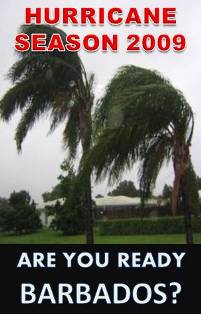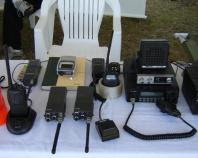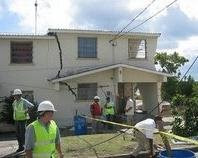 The first tropical depression of the north Atlantic's hurricane season formed Thursday and forecasters said it would likely reach tropical storm strength before petering out over open seas.
The first tropical depression of the north Atlantic's hurricane season formed Thursday and forecasters said it would likely reach tropical storm strength before petering out over open seas."The depression is forecast to become a tropical storm over the next day or so, but then is expected to weaken or dissipate over colder waters by Saturday," the National Hurricane Center said.
At 1500 GMT the depression was located about 500 km (311 miles) south of Providence, Rhode Island or 1,020 kilometers (634 miles) southwest of Halifax, Nova Scotia.
The depression formed even before the official June 1 start of the Atlantic hurricane season, which stretches though November 30.










